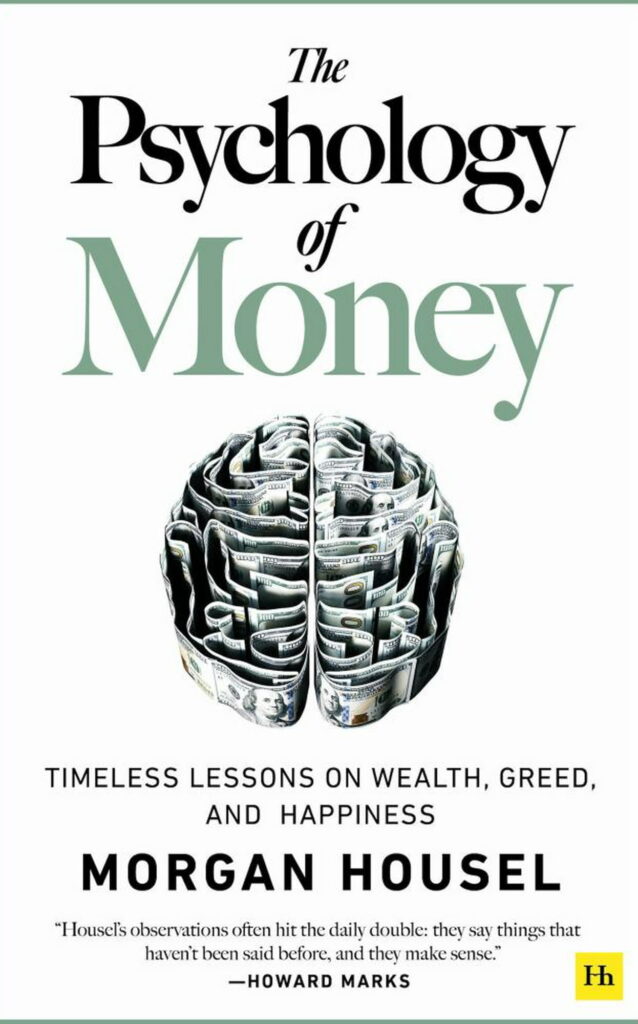Housel harps on the importance of money behavior and how making more money doesn’t just solve your problems. Housel explains the long-term impact that comes with being smart with your money now and the importance of working smarter, not harder. Throughout the book, Housel dives into individual life stories of the money decisions people made along the way and the short and long-term effects that accompanied those decisions. This book can also be a great mirror to your own financial decisions and the behaviors you have yourself.
Favorite Quotes:
“Some people are born into families that encourage education; others are against it. Some are born into flourishing economies encouraging of entrepreneurship; others are born into war and destitution. I want you to be successful, and I want you to earn it. But realize that not all success is due to hard work, and not all poverty is due to laziness. Keep this in mind when judging people, including yourself.”
“Money’s greatest intrinsic value—and this can’t be overstated—is its ability to give you control over your time.”
“Spending money to show people how much money you have is the fastest way to have less money….Be nicer and less flashy. No one is impressed with your possessions as much as you are. You might think you want a fancy car or a nice watch. But what you probably want is respect and admiration. And you’re more likely to gain those things through kindness and humility than horsepower and chrome.”
“Things that have never happened before happen all the time.”
“Planning is important, but the most important part of every plan is to plan on the plan not going according to plan.”
“Independence, to me, doesn’t mean you’ll stop working. It means you only do the work you like with people you like at the times you want for as long as you want.”
“Progress happens too slowly to notice, but setbacks happen too quickly to ignore.”
“Nothing is as good or as bad as it seems.”
“Risk is what’s left over when you think you’ve thought of everything.”
“Someone driving a $100,000 car might be wealthy. But the only data point you have about their wealth is that they have $100,000 less than they did before they bought the car (or $100,000 more in debt). That’s all you know about them. We tend to judge wealth by what we see, because that’s the information we have in front of us.”



